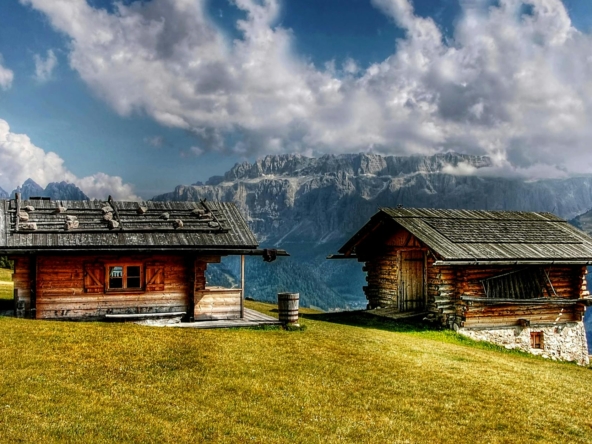Are you planning to rent a property in Nepal for the long term? Finding the right rental agreement can be overwhelming, especially if you’re not familiar with the process. But don’t worry, we’ve got you covered. In this comprehensive guide, we will take you through everything you need to know about renting properties in Nepal. We’ll cover the advantages of renting a long-term property, factors to consider before renting and understanding different types of rental agreements. Additionally, we’ll discuss important clauses that should be included in your long-term rental agreement such as rent and security deposit, maintenance and repairs, tenant and landlord rights and responsibilities, and abiding by property rent control laws in Nepal. Lastly, we’ll give you an idea of popular types of rental properties in Nepal along with their average rental rates so that you can make an informed decision when renting your dream home.
Introduction to renting properties in Nepal
When it comes to renting properties in Nepal, there are a few key things to keep in mind. Firstly, it’s important to understand the rental market and the types of properties available for long-term rentals. This will help you determine what you can afford and what kind of property would best suit your needs. Additionally, be sure to review the terms and conditions of any rental agreement carefully, paying special attention to the length of the lease, payment schedule, and any restrictions or rules that may be in place. Location is also an important consideration – choosing a property that is conveniently located near schools, hospitals, and public transportation can make life much easier down the line. Finally, always inspect a property thoroughly before signing an agreement to ensure that it meets your requirements and is in good condition.
Advantages of renting a long-term property in Nepal
Renting a long-term property in Nepal comes with several advantages that make it an ideal option for those planning to stay for an extended period. One of the primary benefits is financial savings, as long-term rental agreements often come with lower monthly rent rates compared to short-term rentals. Moreover, tenants have more stability and security since they are not at risk of being asked to leave abruptly.
Another advantage of renting a property for a more extended period is the opportunity to establish a better relationship with landlords. When tenants rent properties for more extended periods, they become part of the local community, which can lead to better maintenance and repair services. Additionally, it offers tenants the chance to create a home away from home and enjoy all the amenities that come with living in a particular location. Overall, renting a long-term property in Nepal can provide greater stability, security, and cost-effectiveness compared to other temporary housing options available in the market.
Factors to consider before renting a property in Nepal
When considering renting a property in Nepal, it’s essential to take several factors into account. Location is one of the most critical elements to consider. You want to be close to important amenities like schools, hospitals, and public transportation. Additionally, you should review the terms and conditions of the rental agreement carefully. This includes examining the lease term, rent amount, security deposit, and maintenance responsibilities. Careful inspection of the property before signing a contract is also necessary to ensure that it meets your needs and is in good condition. Working with a reputable real estate agent or lawyer can help you navigate the rental process and protect your interests while negotiating with landlords or property managers for favorable terms.
Understanding different types of rental agreements in Nepal
When it comes to renting a property in Nepal, it’s essential to understand the different types of rental agreements available. The two main types are fixed-term and periodic agreements. Fixed-term agreements have a set end date, while periodic agreements continue on a monthly or yearly basis until terminated by either party. Carefully reviewing the terms and conditions of any rental agreement is crucial before signing, including the rent amount, security deposit, maintenance responsibilities, and termination clauses. It’s also vital to clarify any questions or concerns with the landlord before making any commitments. Ensuring that you understand the type of rental agreement you are entering into can prevent misunderstandings and disputes down the line.
Important Clauses to Include in a Long-Term Rental Agreement in Nepal
When it comes to long-term rental agreements in Nepal, including essential clauses is crucial. One of the most important clauses to include is rent and payment terms, which should clearly define the rent amount and payment schedule. Additionally, it’s important to specify the security deposit amount and late fees, to ensure that tenants understand their financial obligations. Another key clause is maintenance responsibilities, which should outline who is responsible for repairs and maintenance of the property. Defining these obligations can help prevent disputes between tenants and landlords down the line. Other important clauses include the duration of the lease, tenant obligations, and landlord access to the property. By including these essential clauses in your rental agreement, you can help protect your interests and ensure a smooth tenancy experience for all parties involved.
Rent and Security Deposit
Rent and security deposit are crucial elements of any long-term rental agreement in Nepal. The rent clause should clearly outline the amount due each month, the payment due date, and any late fee charges that may apply. It’s also important to include details on what happens if the tenant fails to pay rent on time, including whether or not the landlord has the right to terminate the lease.
In addition, the security deposit clause should specify the amount of deposit required, when it is due, and how it will be refunded at the end of the lease. This clause should also detail any deductions that may be made from the deposit for damages or unpaid rent. By including these clauses in a rental agreement, both landlords and tenants can avoid misunderstandings and ensure a smooth rental experience.
Maintenance and Repairs
Proper maintenance and repairs are crucial when renting a property in Nepal. The rental agreement should clearly outline who is responsible for such tasks, whether it’s the landlord or tenant. Before renting out a property, landlords need to ensure that the property is in good condition. Tenants should report any needed repairs as soon as possible to avoid further damage and additional expenses. Regular maintenance such as lawn care and pest control should also be included in the agreement. It’s important to clarify who will be responsible for major repairs such as plumbing or electrical issues to avoid confusion and disputes. By agreeing on these terms beforehand, both parties can maintain a mutually beneficial relationship throughout the lease term.
Utilities and Bills
When renting a property, it’s important to clarify who is responsible for paying utilities and bills. This clause should be included in the rental agreement to avoid confusion and disputes later on. The agreement should specify whether the tenant or landlord will be responsible for paying for utilities such as water, electricity, and gas. In some cases, the rental amount may include utilities, while in others, they may be charged separately. It’s also crucial to clarify how bills will be calculated and what happens if there are any disputes or discrepancies. By including this clause in the rental agreement, both parties can avoid misunderstandings and ensure a smooth rental experience.
Subletting and Termination Clause
When renting a property in Nepal, tenants should carefully review the subletting and termination clauses in their rental agreement. This clause outlines the conditions under which a tenant can sublet their rental property to another tenant and specifies the terms and conditions under which either party can terminate the rental agreement. Failing to understand this section of the rental agreement can lead to legal complications and misunderstandings in the future. Landlords should be clear about their expectations regarding subletting and termination while tenants should review these clauses carefully before signing the agreement to ensure they fully understand their rights and responsibilities.
Renewal Terms and Conditions
Renewing a long-term rental agreement can be a complex process. To ensure a smooth renewal, landlords and tenants must clearly define the terms and conditions in the rental agreement beforehand. The length of the renewal period, the notice required by both parties, and any changes to rent or other terms during the renewal period should be outlined in detail. It’s important to negotiate renewal terms that work for both parties to avoid misunderstandings or disputes down the line. Carefully reviewing and understanding these clauses before signing a long-term rental agreement can save both landlords and tenants time, money, and legal headaches in the future.
Legal and Procedural Obligations for Renting in Nepal
As a tenant or landlord in Nepal, it’s crucial to understand the legal and procedural obligations related to renting. One of the first steps is to register the rental property with the local municipality. This ensures that both parties are protected under Nepali law and can enforce their rights and obligations as outlined in the long-term rental agreement. Additionally, tenants should be aware of their rights, such as timely repairs and maintenance, while landlords must comply with rent control laws and provide safe living conditions for their tenants. By familiarising themselves with these legal and procedural requirements, tenants and landlords can avoid potential disputes and ensure a smooth renting experience in Nepal.
Tenant Rights and Responsibilities
As a tenant, it is essential to understand your rights and responsibilities when renting a property in Nepal. Your rights as a tenant include the right to a habitable dwelling, privacy, and protection against discrimination. On the other hand, landlords have the right to collect rent on time and maintain their property. As a responsible tenant, it is your duty to pay rent on time, keep the rental unit clean and report any damages or necessary repairs promptly. It’s crucial to read and understand all terms of the rental agreement before signing and fulfilling your obligations as per the agreement. By doing so, you can ensure a smooth tenancy experience for both parties involved.
Landlord Rights and Responsibilities
As a landlord, it is your responsibility to provide a livable and safe environment for your tenants. This includes maintaining the property, ensuring that all utilities are functioning properly, and addressing any safety concerns that arise. Your tenants rely on you to address any issues promptly and effectively. Furthermore, it’s important to note that landlords in Nepal have the right to enter the rented premises for inspection or repairs with reasonable notice given to the tenant. As you draft a long-term rental agreement, make sure that it clearly outlines both your responsibilities as well as those of your tenants.
Abiding by Property Rent Control Laws in Nepal
Nepal’s Rent Control Act was passed to regulate the amount of rent that landlords can charge for their properties. This law is crucial in protecting tenants from being overcharged or evicted without proper legal procedures being followed. Landlords who fail to comply with this legislation risk facing penalties and fines. It is important to carefully review and understand the rental agreement before signing, as it should reflect compliance with Nepalese laws. Seeking legal advice can help clarify any doubts or concerns about the agreement, ensuring a smooth and hassle-free tenancy experience.
Popular Rental Properties and Rates in Nepal
When it comes to finding a rental property in Nepal, there are a variety of options to choose from. From apartments and houses to commercial spaces and serviced offices, the market is diverse. The average rental rates for these properties vary based on their size and location. Typically, smaller properties tend to be more affordable than larger ones, with studios and one-bedroom apartments being the most popular choices for renters. However, it’s important to note that prices can fluctuate depending on the neighborhood and any additional amenities or services included in the agreement.
Average rental rates for different property sizes in Nepal
Nepal offers a wide range of rental properties, from small apartments to large villas. When considering long-term rental agreements in Nepal, one crucial aspect to consider is the average rental rates for different property sizes. The cost of renting a property can vary significantly based on location, amenities, and the condition of the property. For example, in Kathmandu, the capital city of Nepal, the average monthly rent for a one-bedroom apartment ranges from NPR 20,000 to NPR 35,000. Similarly, for a two-bedroom apartment, you may expect to pay anywhere between NPR 30,000 to NPR 50,000 per month. However, three-bedroom apartments can be considerably more expensive with average monthly rents ranging from NPR 50,000 to NPR 80,000. Therefore it’s critical to review rental agreements carefully and negotiate terms that align with your budget before signing any long-term rental agreement in Nepal.
Affordable neighborhoods for renting in Nepal
When considering renting a property in Nepal, it’s important to find an affordable neighborhood that suits your needs. The outer ring road areas have some of the popular areas with lower rental rates. These neighborhoods offer a variety of rental properties such as apartments and houses, making it possible to find something that fits your budget. Kirtipur, Imadol, Dhapakhel, Budhanilkantha, Lokanthali, Gatthaghar, and Kaushaltar are among the most popular ones for low-cost rentals.
However, affordability is not the only factor to consider when choosing a neighborhood. Proximity to public transportation and amenities should also be taken into account. In addition, carefully reviewing the terms of the rental agreement and negotiating terms before signing is crucial for ensuring a satisfactory rental experience. By taking these steps, you can find affordable rental property in a desirable neighborhood in Nepal.
Popular types of rental properties in Nepal
When it comes to finding a rental property in Nepal, there are various options to consider. The most popular types of rental properties are apartments, houses, and rooms. While apartments may be the most expensive option, they often come with amenities and greater privacy. Houses can be rented as a whole or by individual rooms and may be more affordable for larger groups. Renting a room is usually the cheapest option but may involve shared living spaces and limited privacy. Whatever your preference may be, it’s important to carefully consider location, accessibility, and safety before choosing a rental property in Nepal.
Frequently Asked Questions
What are some key terms and clauses that should be included in a long-term rental agreement?
When creating a long-term rental agreement, it’s important to include key terms and clauses such as a clear description of the rental property and its condition at move-in. Details on rent amount, due date, and consequences for late payment should also be specified.
Additionally, the lease term length and conditions for renewal or termination should be outlined. Clauses covering security deposits, utilities, repairs, maintenance responsibilities, and any restrictions on use are also crucial to include in the agreement. These clauses help ensure both the landlord and tenant are aware of their rights and responsibilities during the rental period.
What are some red flags to look out for when reviewing a long-term rental agreement?
When reviewing a long-term rental agreement, be on the lookout for vague or ambiguous language that could be open to interpretation. Also, be wary of agreements that require excessive security deposits or non-refundable fees.
Watch out for hidden costs, such as maintenance fees or utility charges not included in the rent. Additionally, beware of clauses that limit your rights as a tenant, such as restrictions on guests or pets.
Carefully reviewing these potential red flags before signing a rental agreement can help ensure that you are getting a fair and reasonable deal.
Is it possible to negotiate the terms of a long-term rental agreement?
Yes, it is possible to negotiate the terms of a long-term rental agreement. This can include adjusting the rent amount, security deposit, or lease length. It is important to have clear communication with the landlord or property manager during negotiations.
Make sure any changes that are agreed upon are documented in writing and signed by both parties to avoid any misunderstandings down the line. With proper negotiation and communication, you may be able to find a rental agreement that better suits your needs.
How can I ensure that my rights as a tenant are protected in a long-term rental agreement?
To protect your rights as a tenant in a long-term rental agreement, it is important to carefully read and understand the terms before signing. Make sure the agreement includes clauses that protect your rights, such as the right to quiet enjoyment and landlord responsibilities for repairs. Additionally, ensure that the agreement covers important provisions like security deposits, rent increases, and early lease termination.
If you have any doubts or concerns, consider seeking legal advice or consulting with a tenant advocacy group to ensure that your rights are protected throughout the rental period.
Conclusion
In conclusion, renting a property in Nepal is a great option for those looking for long-term accommodation. However, it’s crucial to understand the terms and conditions of your rental agreement before signing the dotted line. This includes knowing what clauses to include, legal obligations, and popular rental properties and rates in Nepal. By doing so, you can ensure that your renting experience is hassle-free and enjoyable. Found this guide helpful? Share it with your friends on social media!



